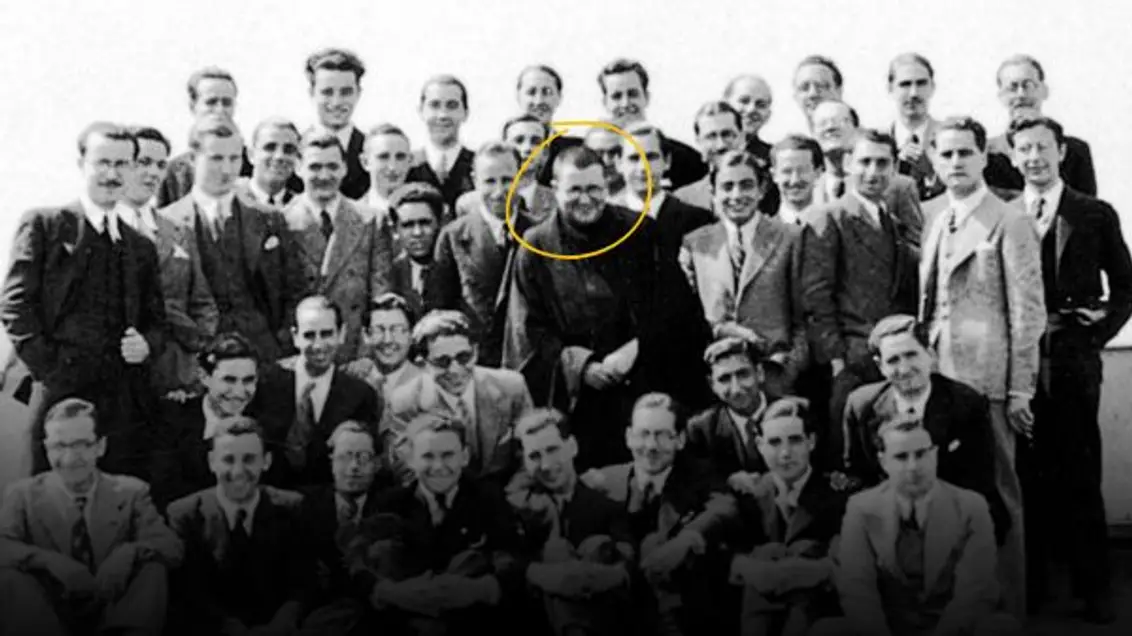With the trust that exists between friends everwhere, God asked him to remind everyone that He was waiting for them, right where they already were. Josemaría shared that message through his life: the Gospel is in the now, the Gospel is for everyone, everywhere. That's Opus Dei.
"I am yours, I was born for you: Jesus, what do you want from me?"
Jose María Julián Mariano was born on January 9, 1902. His parents, José and Dolores, lived in Barbastro, a city in northern Spain. His childhood was not without difficulties and suffering. His three younger sisters died when they were very young, and he himself nearly died at the age of 2 due to illness. Later, when Josemaría was 13, his father lost his job, and the whole family had to move to Logroño.
"Lord, that I may see! My Lady, may it be!"
In Logroño, Josemaría felt a particular call from God and decided to become a priest, a dream that was realized on March 28, 1925, when he was 23 years old. With the death of his father, Josemaría (who had simultaneously studied for a law degree) became responsible for supporting his mother and siblings.
"Twenty-six years, the grace of God, and a good humor"
Josemaría decided to move to Madrid with his family to pursue a doctorate in law. There, he began intense pastoral work, attending to the sick and poor. On October 2, 1928, Josemaría received a special light from God to remind the world that all Christians are called to reach Heaven through their ordinary life. To achieve this, the young priest (who was only 26 years old) relied on young university students to carry out this great project from God.
"Whatever comes, it's all for the best, because everything comes from the hands of our Father-God."
In mid-1936, the Spanish Civil War began, bringing with it intense religious persecution. In November 1937, Josemaría and a group of young people from Opus Dei left Madrid, fleeing through the Pyrenees. Once in Burgos, Josemaría was able to resume his priestly work. From there, he sent letters to the young members of Opus Dei who were in different parts of the country (some even at the battlefront) and completed the writing that would soon be published as "The Way."
"Out of a hundred souls, we care for a hundred"
Josemaría returned to Madrid in 1939, at the end of the Civil War, where he resumed the apostolic work of Opus Dei. A few years later, in order to find the proper way for Opus Dei to be organized within the Code of Canon Law, Josemaría moved to Rome. There, he promoted the construction of the central headquarters of the Work. Meanwhile, Opus Dei began to grow in countries such as Portugal, France, England, Mexico, the United States, Switzerland, Brazil, Japan, and Kenya.
"This is our destiny on earth: to struggle, for love, until the last moment."
On June 26, 1975, Josemaría died suddenly in Rome, looking at an image of Our Lady of Guadalupe, as he had wanted. On May 17, 1992, he was declared blessed, and on October 6, 2002, John Paul II canonized him in St. Peter's Square, calling him "the saint of ordinary life."






